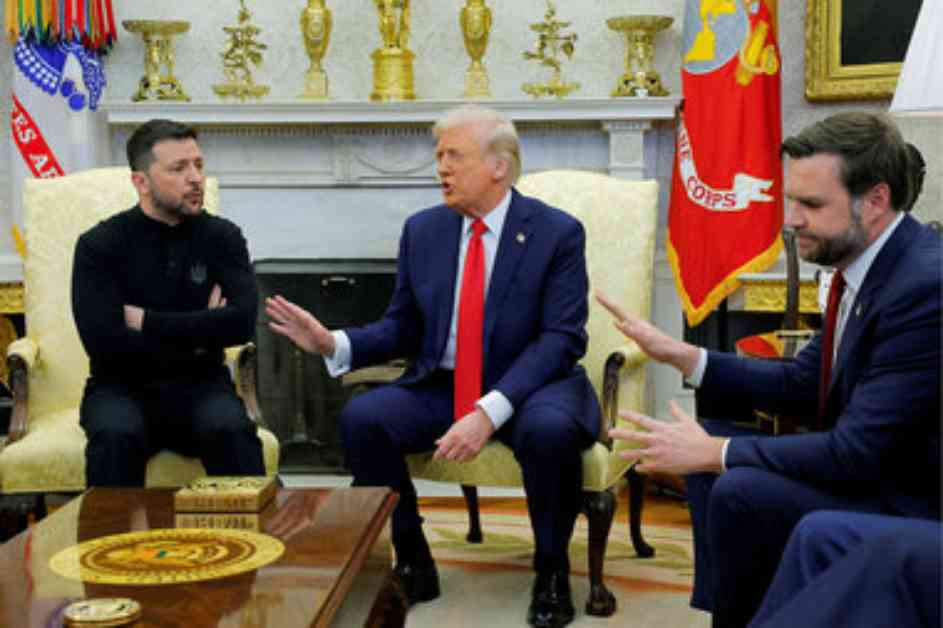A high-profile meeting between President Donald Trump and Ukrainian President Volodymyr Zelenskyy recently took a sharp turn, leaving a cloud of uncertainty hovering over Ukraine’s future. Originally intended to solidify terms for bilateral cooperation, the encounter quickly unraveled into a heated exchange that showcased a stark shift in U.S. foreign policy towards big-power politics, veering away from traditional alliance-based approaches.
The White House had set the stage for what was supposed to be a significant meeting to finalize a bilateral deal on Ukraine’s rare-earth minerals development. However, what transpired in real-time, under the scrutiny of media cameras, was far from a harmonious agreement. Instead, it turned into a clash of ideologies between the Ukrainian leader and top U.S. officials, including President Trump and Vice President JD Vance.
President Trump commended the Ukrainian people for their courage in the face of conflict but expressed concern over President Zelenskyy’s refusal to swiftly pursue peace negotiations with Russian President Vladimir Putin, warning of the potential for a catastrophic global conflict. In response, President Zelenskyy defended his stance, highlighting the importance of not conceding to Russia’s terms, which could lead to further conflict down the line.
During the intense exchange, Ukrainian Ambassador Oksana Markarova was captured with her head in her hands, symbolizing the diplomatic turmoil unfolding in the White House. Following the meeting’s abrupt end, President Zelenskyy was reportedly asked to leave the premises by White House officials, marking a tumultuous conclusion to the anticipated diplomatic discussions.
President Trump took to social media platform Truth Social to criticize President Zelenskyy, accusing him of disrespecting the United States during their meeting in the Oval Office. This public fallout not only strained relations between the two leaders but also shed light on a broader shift in U.S. foreign policy dynamics, favoring a more power-centric approach over traditional alliance-building strategies.
The implications of this rift between the U.S. and Ukraine extend beyond mere diplomatic tensions. Lawrence Korb, a former assistant secretary of defense, expressed concerns about the potential impact on U.S. aid to Ukraine and how this episode could be perceived as a victory for Russian President Putin. The sudden change in tone towards a longstanding ally like Ukraine underscores a significant departure from America’s established global leadership role under President Trump.
As the dust settles from this contentious meeting, the repercussions of this diplomatic fallout on Ukraine’s geopolitical positioning and U.S. foreign policy trajectory remain uncertain. The clash between the two leaders serves as a stark reminder of the complexities and challenges that define international relations in an era dominated by power struggles and shifting political landscapes. The future implications of this strained relationship between the U.S. and Ukraine could have far-reaching consequences, shaping the geopolitical landscape in unforeseen ways.
Lawrence Korb’s reflection on the situation paints a worrisome picture, hinting at potential ramifications for U.S. foreign aid and regional stability. The fallout from this meeting serves as a cautionary tale of the fragility of international alliances and the delicate balance of power that underpins global diplomacy. The repercussions of this incident could echo far beyond the walls of the White House, resonating across the geopolitical spectrum and reshaping the dynamics of international relations.

